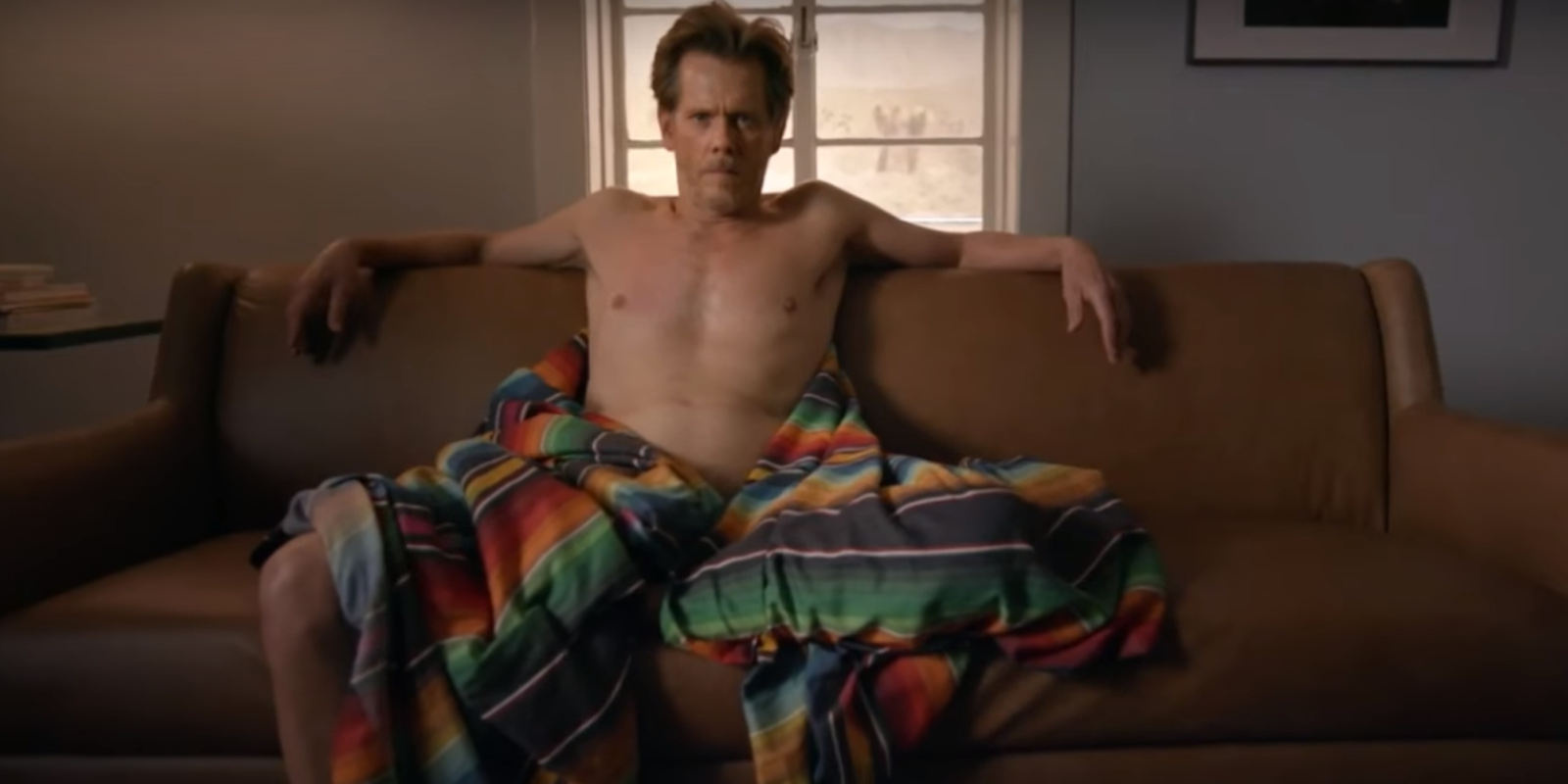Early in the first season of I Love Dick—the newest Amazon original from Transparent showrunner Jill Soloway—viewers are taken to the home of the titular Dick, a renowned artist and professor played stoically yet purposefully by Kevin Bacon. The professor, thus far an enigmatic combination of confidence and pretension, is shown in a wide shot approaching an above-ground pool in the middle of the Texas outlands. As Dick ascends the stairs and strips naked, slowly descending into the pool, the faraway camera remains still, making Bacon’s nude form stand strong against the wilted bushes and setting sun.
It’s an intimate scene spotlighting the first goal of I Love Dick—to objectify and sexualize Bacon’s character as a bizarro-world interpretation of the way art typically sexualizes women. The second goal of Dick, based on the cult memoiristic novel by Chris Kraus, is a narrative that compares erotic obsession with artistic ambition. Lacking subtlety but not sensitivity, Soloway brings a story rooted in the insular world of academic critical theory, blending the boundaries between the arthouse and the peep show.
The story centers of Chris Kraus, played with frustration and depth by Kathryn Hahn. Kraus has followed her husband Sylvere (Griffin Dunne) to an artistic fellowship in Marfa, Texas, (population 1,765) led by Dick. After experiencing a disappointing refusal of her film by the Venice Film Festival, Chris channels her frustration into an energetic and obsessive attraction to her husband’s new mentor, despite his misogyny and arrogance.
Soloway conducts this story in a way likely unapproachable for some—clips of Chris’ experimental filmwork lace throughout the series and scenes of relative unimportance to the story flit in and out like shadows. Viewers of Transparent will be familiar with many of the themes present here—sexual identity, loyalty to abstract cofncepts like marriage, the creative struggle. But Soloway weaves them between the attractive performances of Hahn, Dunne, and Bacon, as well as the salacious yet human source material.
I Love Dick the novel is an experimental combination of storytelling and the lived experiences of its author. Kraus crashed through the niceties of professionalism and penned a story that sent waves through the artistic community upon its 1997 release. Barely, if at all, changing the names of real-world artists and professors, I Love Dick was received as “a fusion of gossip and theory” yet the brutal honesty therein attracted fans who loved it for more than its sensationalism.
Mercifully, Soloway’s interpretation not only puts aside the inside-baseball mechanics of the novel but actively skewers the arts world. Instead of justifying or explaining one of Dick’s art pieces—consisting of nothing more than a brick on a white pedestal—we live through Chris’ complete dismissal of the work.
Just south of middle aged and surrounded by enlightened youth—lit aflame by strange haircuts and queer identities—Chris is an unlikeable manifestation of an all-too-relatable impulse inherent in every creative. While her films, like Dick’s brick, can and often are easily dismissed as absent of appeal or message, Chris struggles against the power dynamics built into a field of work which takes as honorific the interpretations and validations of professors and elites. Chris’ films are as bizarre and sex-obsessed as their creator, and they are acclaimed by few outside of Sylvere, who is indulging her at best.
That frustration is channeled into Chris’ physical infatuation with Dick, a representative of masculine appeal as well as the art world Chris struggles to pierce. I Love Dick employs as a narrative and tonal device excerpts from the letters Chris pens to Dick. “Desire is claustrophic inside your skin,” she writes. “I don’t care if you want me—it’s better that you don’t. It’s enough that I want you.” Because she never intends their target to read them, the letters express Chris’ sexual frustration with an honesty that is rarely reserved for female characters.
Alongside familial struggles, marital dynamics, and their relation to Jewish identities, Soloway embraces and displays female sexuality in a way few other filmmakers dare or bother. That bravery is a deservedly lauded feature of Transparent, a story about self-discovery and the aftershocks it can create in our relationships. But in I Love Dick, female sexuality is not merely a medium but the message itself. The camera often rests slowly and longingly on Bacon’s admirable physique, encouraging us to absorb every bulge and muscle just as Chris cannot help herself but do.
Many viewers might find themselves frustrated with the inaction of the plot. Though Dick is layered in tension, one cannot ignore the way the show functions much more as a commentary than it does a story. The flaccid marriage between Chris and Sylvere is enlivened by the former’s attraction to Dick yet rests delicately on her husband’s own desire for his professor. There is a side plot featuring their youthful and queer neighbors’ own attempts for artistic and romantic validation, but its existence in connection to the main story seems disjointed if enjoyable.
None of these narratives are as addictive as Hahn’s performance as the foul-mouthed, neurotic Chris. Hahn rips the anger and vexation that stems from Chris’ unrequited attraction and expression like a bone from meat, drafting a raw yet approachable character. Without this performance, one could easily dismiss Dick as an interesting yet overdone meditation on the female gaze. With it, however, and I Love Dick is a soft and consumable experiment successful in its merger of obscure aesthetics and the deconstruction of sexual appeal.


